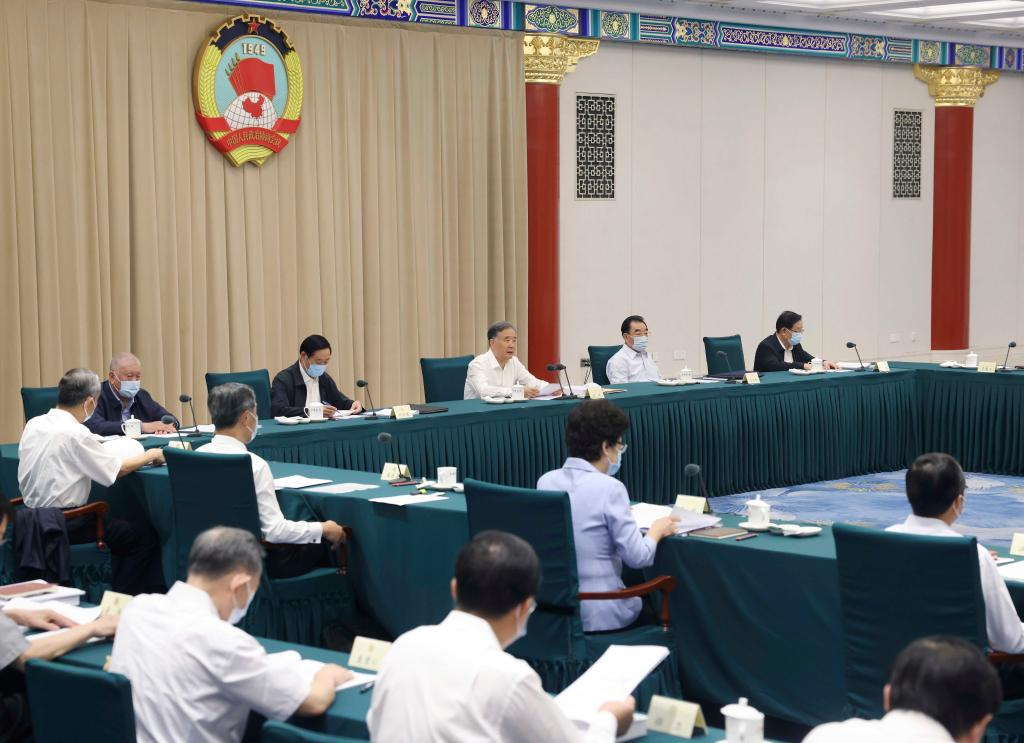
A brainstorming session for members of the chairpersons' council of China's top political advisory body is held in Beijing, capital of China, Aug. 17, 2022. Wang Yang, a member of the Standing Committee of the Political Bureau of the Communist Party of China Central Committee and chairman of the Chinese People's Political Consultative Conference (CPPCC) National Committee, presided over the meeting and delivered a speech. (Xinhua/Liu Weibing)
BEIJING, Aug. 17 (Xinhua) -- Senior Chinese political advisors on Wednesday met in Beijing to discuss the practical, theoretical, and institutional innovation of the Chinese People's Political Consultative Conference (CPPCC) in the new era.
Wang Yang, a member of the Standing Committee of the Political Bureau of the Communist Party of China Central Committee and chairman of the CPPCC National Committee, attended and addressed the brain-storming session of the Chairpersons Council of the CPPCC National Committee.
The meeting acknowledged the work of the CPPCC National Committee in recent years in advancing the practical, theoretical and institutional innovation of the CPPCC, enhancing Party building, and strengthening the role of the CPPCC as a specialized consultative body, among others.
The political advisors called for efforts to enable the CPPCC to better fulfill its important roles of strengthening and upholding Party leadership over all areas of work, of using the Party's latest theories to unite and guide public figures from all ethnic groups and social sectors, and of resolving problems and building consensus based on a shared theoretical and political foundation.
They also called for improving the platforms, systems and mechanisms of the CPPCC as a specialized consultative body and strengthening the ability of political advisors to conduct political consultation, to foster a good atmosphere for equal exchanges and democratic consultation. ■



